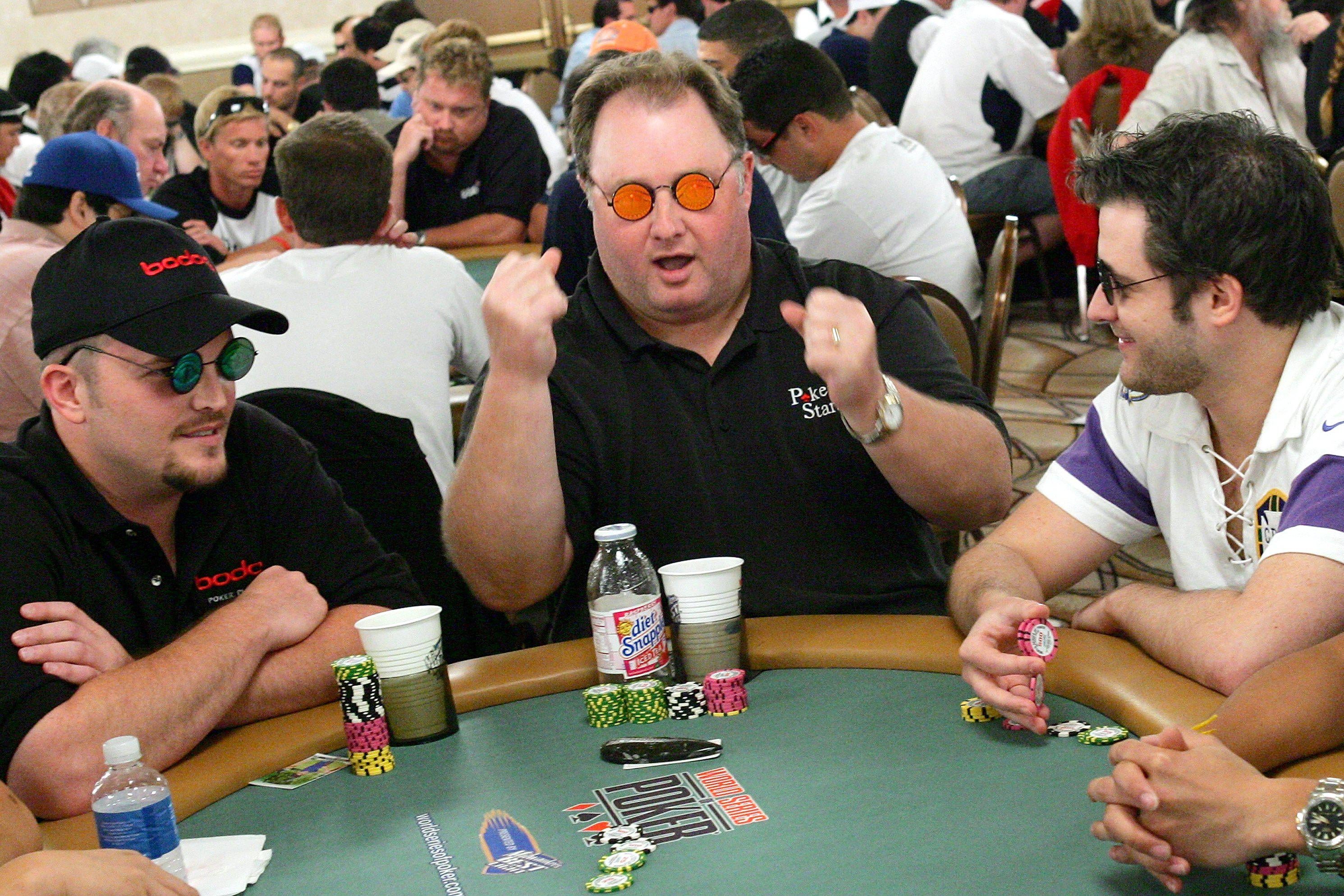Dan Harrington dropped the poker face as he shuffled out of the 35th World Series of Poker last Friday. Forget that the pasty, 58-year-old, Boston-raised pro had just won $1.5 million by finishing fourth in the world’s premier Texas Hold ‘Em tournament. The former World Series champion, with his unbent green Red Sox cap pulled low and mouth turned down, looked like someone had just killed his dog. The truth was even worse: Harrington, the last remaining professional poker player in the tournament, had been outplayed by a 23-year-old college student.
The economics and math major who dispatched Harrington was just one small part of the uprising by poker’s hoi polloi. The army of amateurs and Internet qualifiers who descended on Las Vegas, including eventual champion Greg “Fossilman” Raymer, goosed this year’s jackpot to $5 million. Anyone can enter the World Series of Poker. This year, seemingly everyone did: The 2,576 entrants, who qualified either by putting up $10,000 or placing highly in satellite tournaments, tripled the size of the 2003 field. Most of the newcomers were young—four of the nine players at the final table were under 30. Two even honed their card-playing skills by mastering the consummately nerdy game Magic: The Gathering.
They came because of Chris Moneymaker, the everyman with a perfect name who won last year’s World Series after earning a seat in a $40 online tournament. Thanks to constant reruns on ESPN, the 28-year-old accountant from Tennessee has re-won the tournament two or three times a day for the past year. The network sold Moneymaker as poker’s Roy Hobbs, the gifted youngster who started as “dead money” and dismantled the game’s cagey veterans one by one. The broadcasts were also a vehicle to promote the game’s established pros—former champions Scotty Nguyen and Phil Hellmuth, legends Howard Lederer and Men “The Master” Nguyen, and hot up-and-comers like Phil Ivey. Moneymaker’s surprise victory didn’t undermine ESPN’s storyline, though. He may have been a newbie, but Moneymaker wasn’t lucky: The wraparound shades, steely glare, and calm under pressure made him an instant member of ESPN’s star system. He was a hard-bitten, old pro in a young man’s body.
In this year’s tournament, Moneymaker went right back to nowhere. In the first hour of the five-day tournament, the champ’s three aces lost to a full house. His conqueror: one of the new-school Chris Moneymaker wannabes. In a no-limit poker tournament, you have to risk all of your chips to win. But against this year’s cast of thousands, the masters had to go all-in again and again. When the field gets bloated, there is less chance that the smartest, wiliest players will win, and it is more likely that the final table will turn into an extended amateur hour. In an NCAA tournament with more than 2,000 teams, the top seed would probably lose on a buzzer beater eventually.
Harrah’s Entertainment, which bought the rights to the World Series from Binion’s Horseshoe last year, certainly doesn’t mind the Hold ‘Em boom. The company expects 6,000 players next year and plans to move early rounds to the glitzier Rio, near the strip. The World Series may be the most prestigious and highest-paying tournament in poker, but ESPN made it a must-see event. But the network, which will begin televising this year’s World Series next month, may have made a losing bet.
These days, every channel has a poker show. They all have those lipstick cameras that offer peeks at the players’ hole cards and promise the nervy suspense that comes with an all-in bet. But Bravo’s Celebrity Poker Showdown has witty celebs. The Travel Channel’s World Poker Tour includes the game’s best—or at least most famous—players duking it out in fancy resorts. The World Series, then, offers the big bucks and the idea that “anyone can win.” Anyone can win, though, is less exciting than it sounds. In sports, it’s fun to root for the underdog because of the small chance that he can knock off a superstar. But when anyone can win becomes anyone always wins, you’re just left looking for a familiar face.
